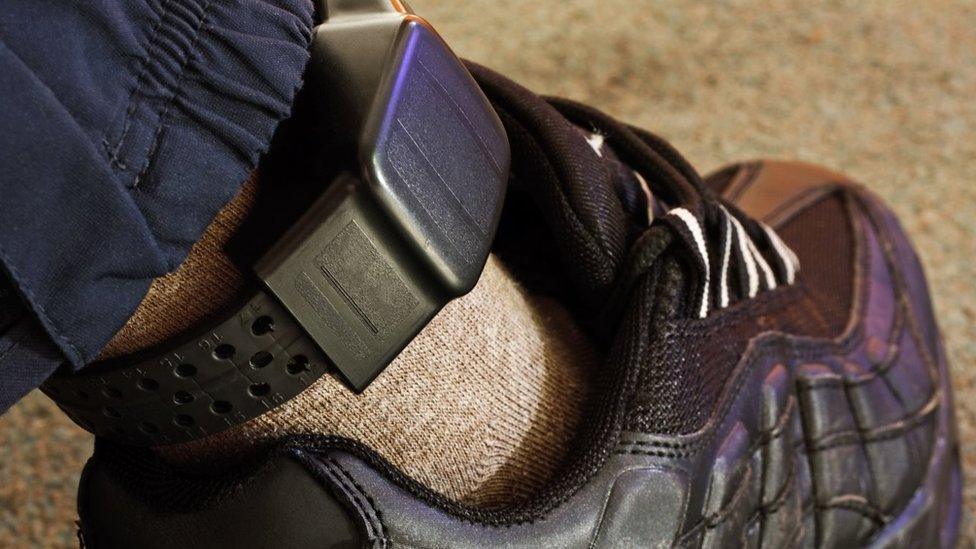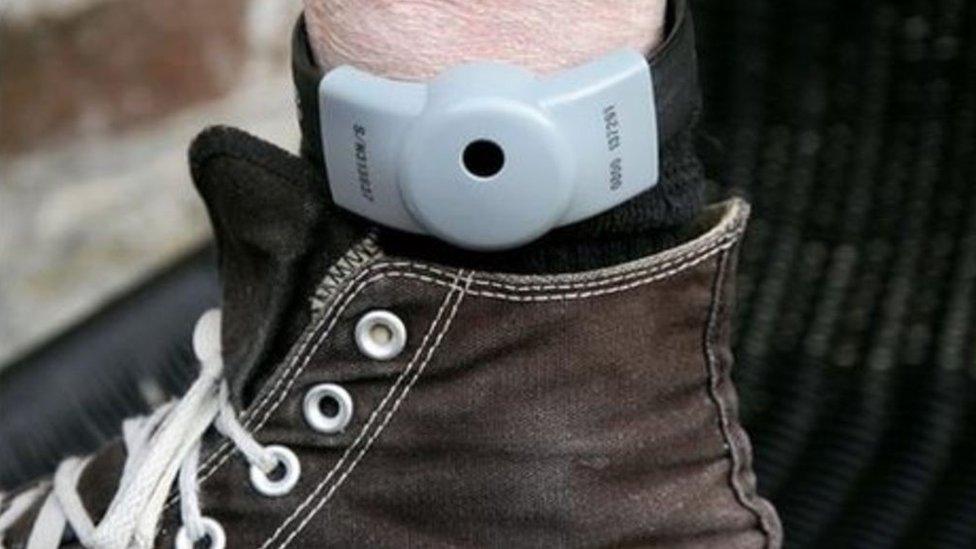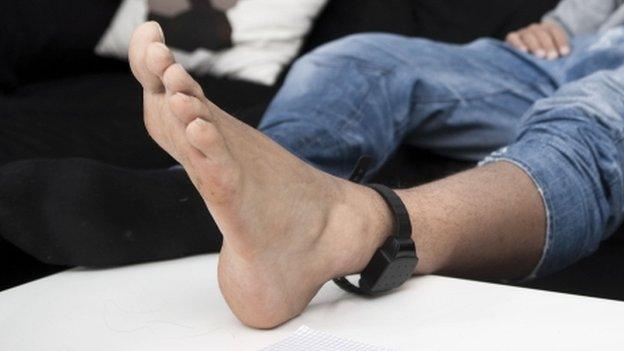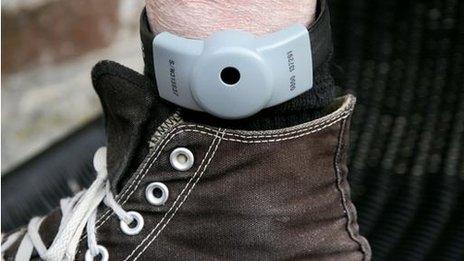Offenders to be tracked by satellite under new pilot scheme
- Published

Up to 1,500 offenders will be tracked by a satellite tagging system under a Ministry of Justice pilot scheme, external.
The MoJ said the aim of the trial is to see if tagging changes the behaviour of offenders or those who order its use.
Offenders who may be targeted in the trial include those with suspended sentences or those on licence.
But the Howard League for Penal Reform called the news "bizarre" as tagging contracts are being investigated by the Serious Fraud Office.
Initially announced in this year's Queen's Speech, the pilot follows the government's failed £21m government project to create a "bespoke" tagging system.
Published on Friday, a guidance document, external from the MoJ and National Offender Management Service said the aim of the project is to see whether the GPS tags can "reduce further demand on the prison estate" and act as a "useful alternative to custody".
The scheme will also examine whether the technology could help to "improve rehabilitative outcomes" by reducing future offending.
The pilot will run for 12 months in two areas in England; with area one covering Nottinghamshire, Staffordshire, Leicester, the West Midlands and area two covering Bedfordshire, Northamptonshire, Cambridgeshire and Hertfordshire.
Using technology effectively
The plans will focus on offenders living in the community and are expected to include people with suspended sentences and community orders, those on early release from prison, offenders released on licence, and those subject to court-imposed bail as well as certain other cases.
Existing tagging systems in England and Wales work through either GPS or radio frequency technology.
Although the GPS technology itself will not be new, it will allow authorities to monitor the whereabouts of offenders and set 'inclusion zones' that they are not allowed to leave such as a county, or 'exclusion zones' they are not allowed to enter such as areas around an address or school respectively.
Data showing the offender's whereabouts will be monitored by a team of 24-7 staff who have the ability to contact officers and local police in the event of a breach.
An MoJ spokesperson said: "These previously announced GPS tagging pilots will increase our understanding of how new technology could be used more effectively to monitor suspects and offenders in the future. We will await the results of the trials."
But Frances Crook, chief executive of the Howard League for Penal Reform, said: "It is bizarre for the government to be talking about extending this approach, however, at a time when tagging contracts remain the subject of an investigation by the Serious Fraud Office."
She did agree that tagging "can be a useful measure in very specific circumstances, if it is part of a highly-structured support programme to help people into a crime-free life".
No contact sports
However, only certain offenders - all aged over 18 - will be eligible for the scheme.
Those who do not have a fixed address, for example, will not be able to take part as the tagging equipment needs to be charged for two hours a day using a fixed supply of electricity.
People with serious mental health issues or learning difficulties might also be ineligible, the document said, because they may find it difficult to "understand the requirements or conditions" of wearing the tag.
There are also limitations to what offenders can and cannot do while wearing the tag.
They will not be able to take part in certain activities such as water sports and contact sports including football, and they may not be able to visit certain locations such as hospitals, or be able to travel by plane.
The MoJ said that while it has "budgeted for 1,500 tags across both pilot areas", it may not reach this figure and expects "a gradual build-up of active tags over several months".
But it may also increase the number of tags, it said, if it reaches this number earlier than expected.
- Published25 February 2016

- Published26 August 2015

- Published24 September 2012
